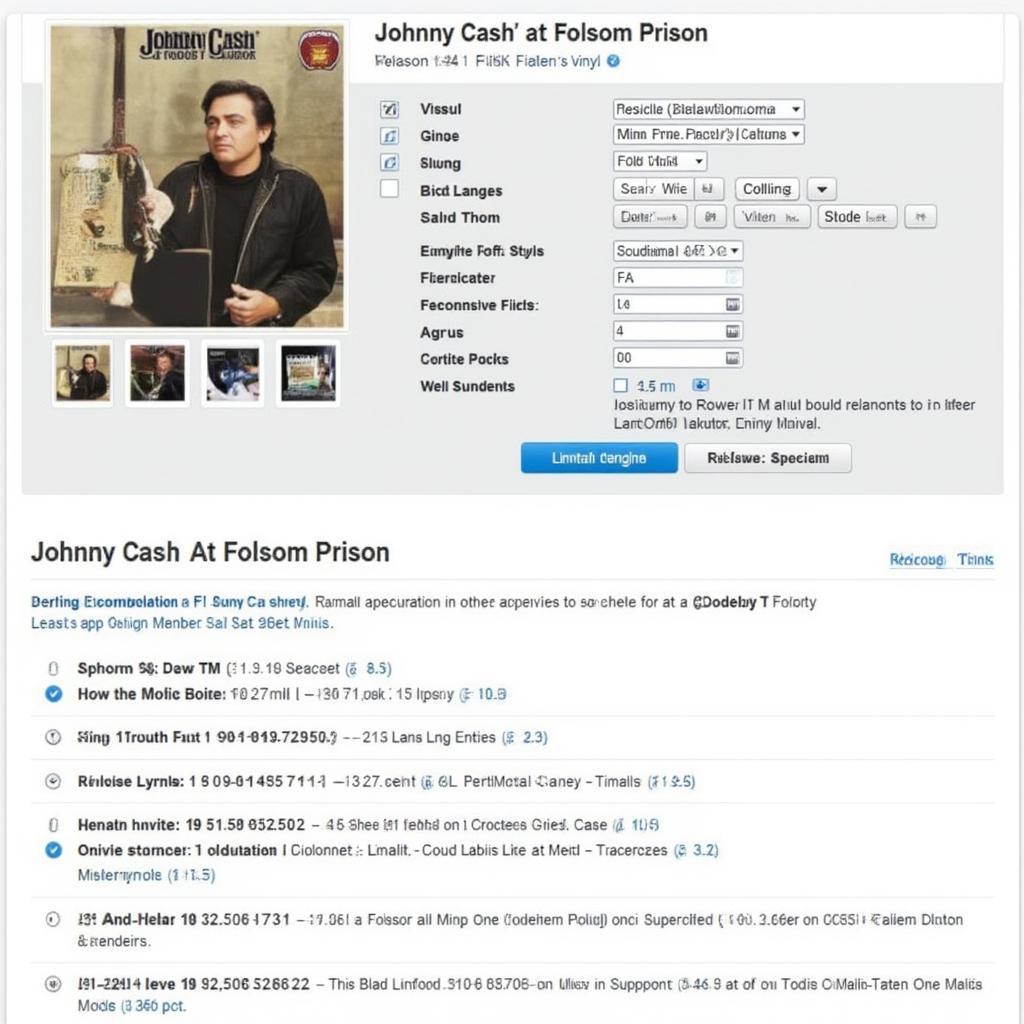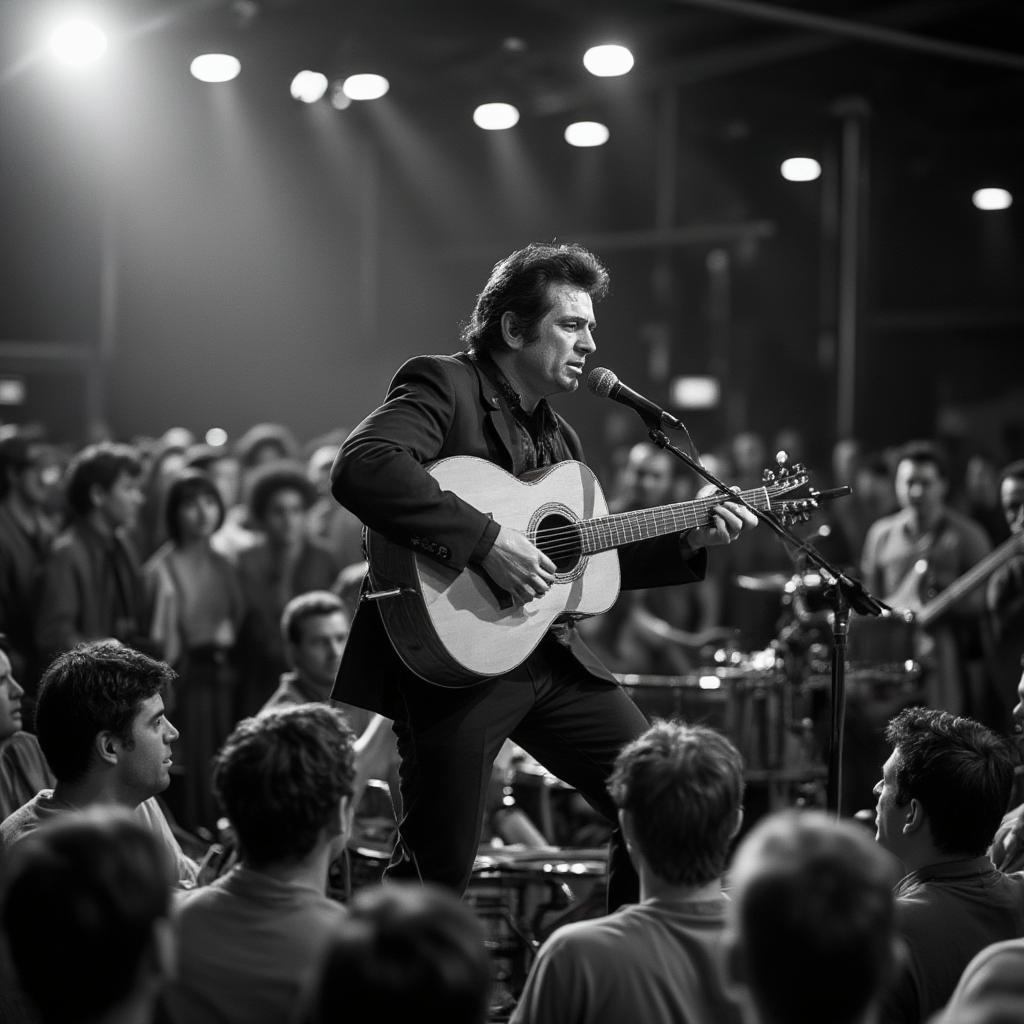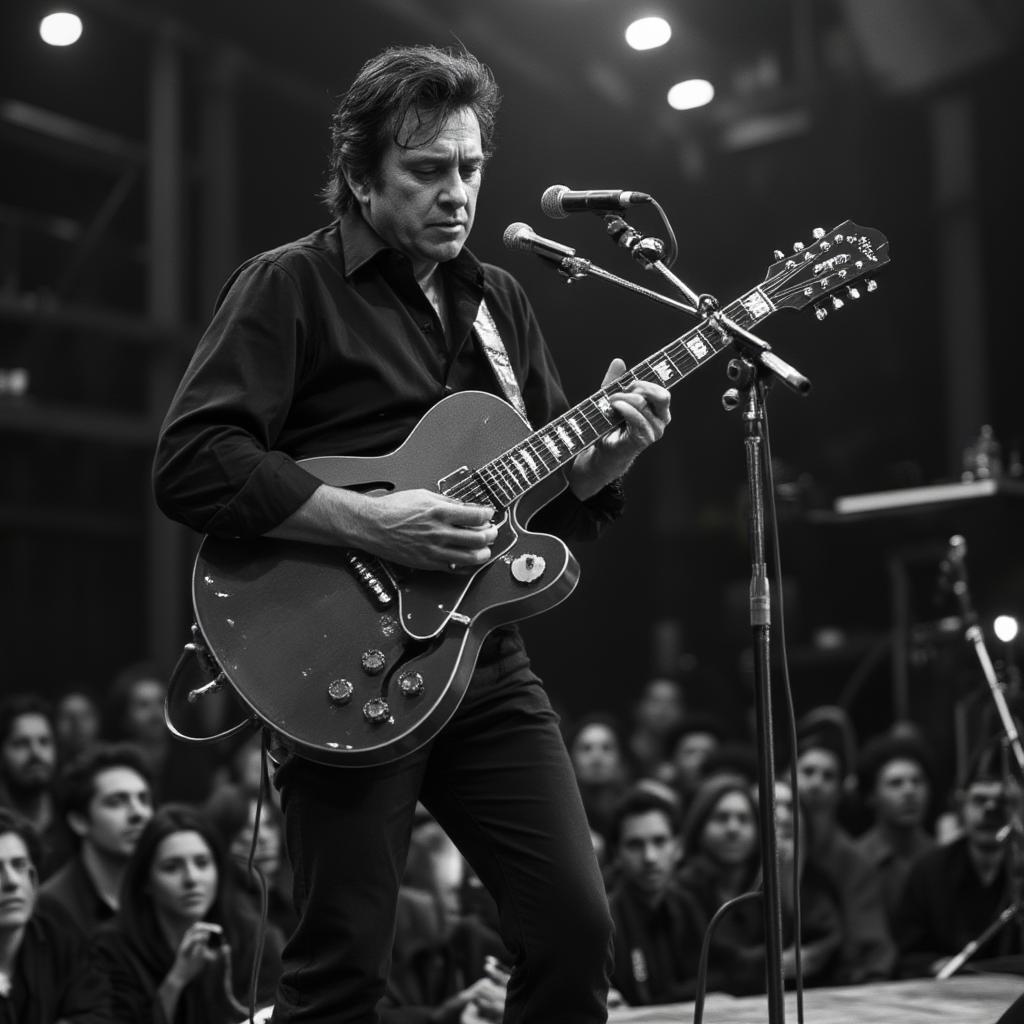Johnny Cash in Jail: The Folsom Prison and San Quentin Performances That Defined an Era
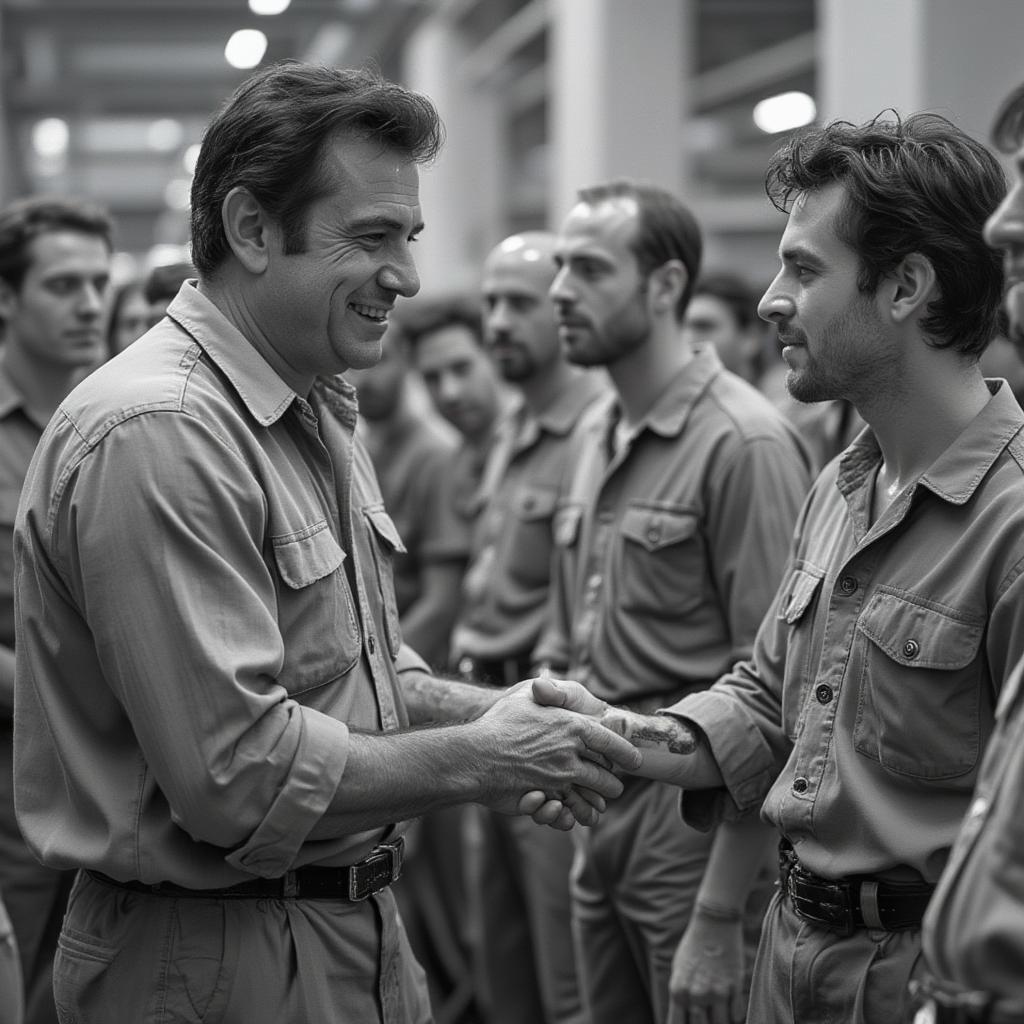
Johnny Cash’s connection to prisons and the incarcerated went far beyond mere songwriting. His legendary performances at Folsom Prison and San Quentin State Prison in the late 1960s solidified his image as “The Man in Black,” a champion of the downtrodden and a voice for the voiceless. These concerts weren’t just musical events; they were cultural touchstones that resonated with both inmates and the wider public, cementing Cash’s legacy as an icon of empathy and rebellion.
Why Did Johnny Cash Play in Prisons? A Deeper Look
Cash’s affinity for prisoners stemmed from a deep-seated empathy and understanding of their struggles. He wasn’t a stranger to hardship himself, having battled personal demons and witnessed the struggles of the working class throughout his life. This personal connection fueled his desire to bring music and hope to those behind bars. He believed in redemption and the power of music to heal and inspire, even in the darkest of circumstances. Cash’s prison performances weren’t about glorifying crime; they were about acknowledging the humanity of those who had made mistakes and offering a message of compassion.
Folsom Prison: The Birth of a Legend
In 1968, Johnny Cash, at the peak of his career, chose Folsom State Prison as the setting for a live album recording. This wasn’t a random choice. Cash had been performing for inmates for years, starting in 1957 at Huntsville State Prison in Texas. But Folsom held a particular significance, immortalized in his hit song “Folsom Prison Blues,” which he first recorded in 1955. The song, with its vivid imagery and tales of regret, resonated deeply with prisoners, making Folsom the perfect location for this groundbreaking performance. johnny cash 1962 marked a significant turning point in his career, laying the foundation for his later success. The raw energy of the Folsom performance, captured in the live album At Folsom Prison, launched Cash to new heights of fame.

San Quentin: A Triumphant Return
Following the monumental success of the Folsom Prison album, Johnny Cash returned to the prison stage in 1969 at San Quentin State Prison. This performance, recorded for another live album, At San Quentin, featured a more politically charged setlist, reflecting the turbulent social climate of the late 1960s. Songs like “San Quentin,” a song written specifically for the San Quentin inmates, and his cover of Bob Dylan’s “A Boy Named Sue,” captured the raw emotions and frustrations of the time. The San Quentin performance further solidified Cash’s status as a counter-culture hero and an advocate for social justice.
What Songs Did Johnny Cash Sing in Jail? The Setlists
The setlists for both the Folsom and San Quentin concerts were carefully curated to connect with the inmate audience. They included a mix of gospel songs, classic country tunes, and Cash’s own hits, many of which dealt with themes of sin, redemption, and life on the fringes of society. These songs, delivered with Cash’s signature booming voice and raw emotion, spoke directly to the experiences of the prisoners.
“Folsom Prison Blues” was a staple of both performances, serving as an anthem of sorts for the incarcerated. Other notable songs included “Ring of Fire,” “I Walk the Line,” and “Cocaine Blues.” At San Quentin, Cash debuted “San Quentin,” a song that directly addressed the harsh realities of prison life and the inmates’ yearning for freedom.
The Legacy of Johnny Cash’s Prison Concerts
Johnny Cash’s prison concerts were more than just musical performances; they were acts of empathy and solidarity that continue to inspire today. These concerts humanized the incarcerated, giving them a voice and a platform to be heard. The albums recorded at Folsom and San Quentin became commercial and critical successes, further amplifying Cash’s message of compassion and social justice. They remain powerful testaments to the transformative power of music and the enduring legacy of “The Man in Black.”
Johnny Cash and Prison Reform: A Lasting Impact?
Did Johnny Cash’s prison performances directly lead to prison reform? It’s a complex question. While his concerts didn’t single-handedly change the prison system, they undoubtedly raised awareness about the conditions faced by inmates and sparked important conversations about criminal justice reform. Cash’s advocacy for prisoners went beyond his music. He testified before Congress, advocating for better prison conditions and rehabilitation programs. His voice, amplified by his fame and the powerful imagery of his prison concerts, helped to shift public opinion and pave the way for future reform efforts.
FAQ: Johnny Cash and His Prison Performances
-
When did Johnny Cash perform at Folsom Prison? January 13, 1968.
-
When did Johnny Cash perform at San Quentin Prison? February 24, 1969.
-
Why was Johnny Cash drawn to performing in prisons? He empathized with the inmates and believed in the power of music to offer hope and redemption.
-
What was the most popular song Johnny Cash sang in prison? “Folsom Prison Blues” remains a fan favorite.
-
Did Johnny Cash write any songs about prison? Yes, he wrote “Folsom Prison Blues” and “San Quentin,” among others.
-
What was the impact of Johnny Cash’s prison performances? They raised awareness about prison conditions and contributed to the conversation surrounding prison reform.
-
Where can I listen to Johnny Cash’s prison albums? They are widely available on streaming services and in record stores.
-
Did Johnny Cash ever go to jail himself? Yes, he was arrested several times for minor offenses.
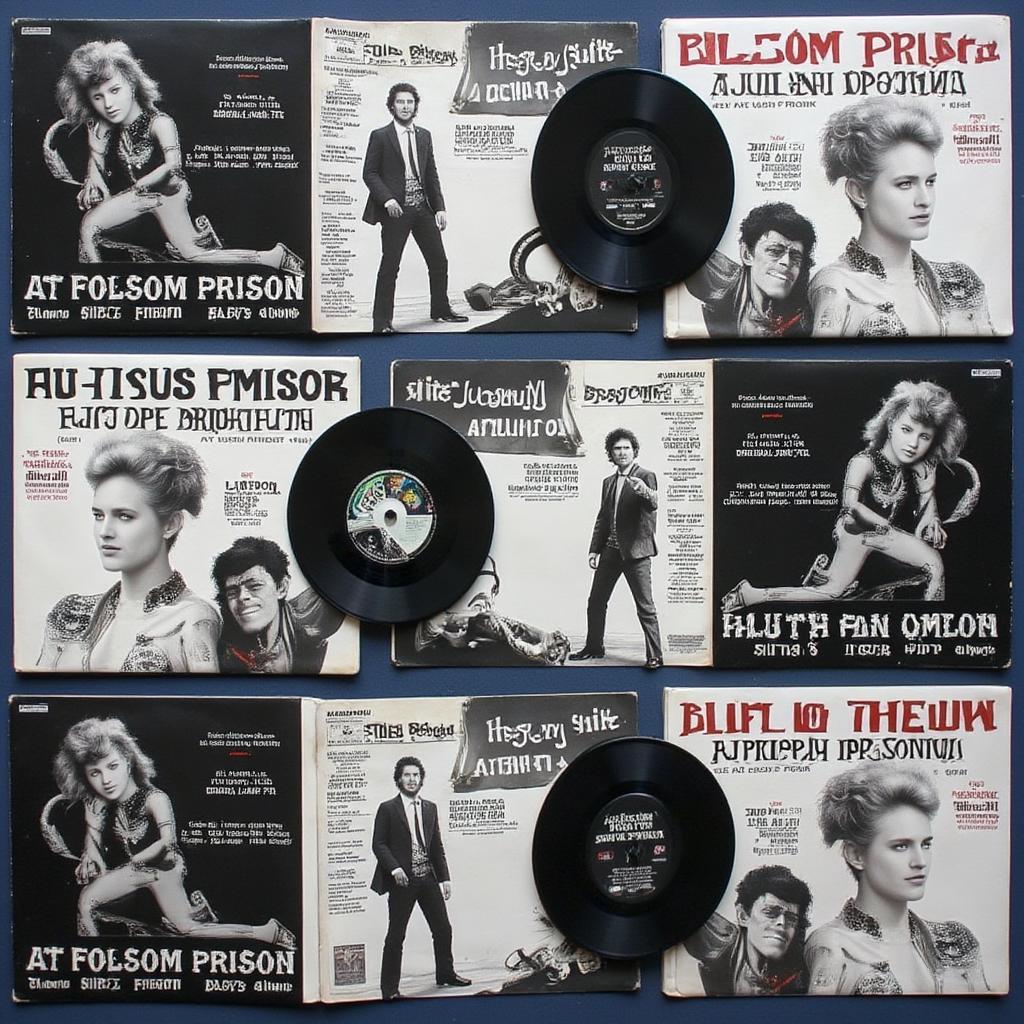
In conclusion, Johnny Cash’s performances at Folsom Prison and San Quentin remain powerful symbols of his commitment to social justice and the transformative power of music. These concerts transcended entertainment, becoming cultural touchstones that continue to resonate with audiences today. His legacy as “The Man in Black,” a champion of the underdog and a voice for the voiceless, is forever intertwined with his time spent behind prison walls, bringing music and hope to those society often forgets. For more information on Johnny Cash’s career and legacy, you can explore resources like johnny cash 1962 to gain deeper insights.


